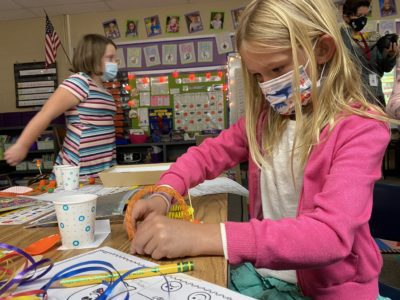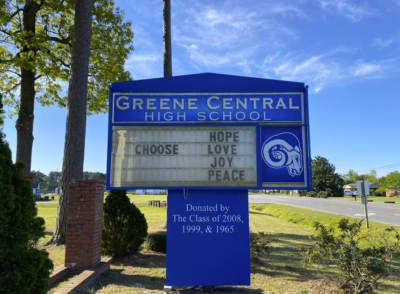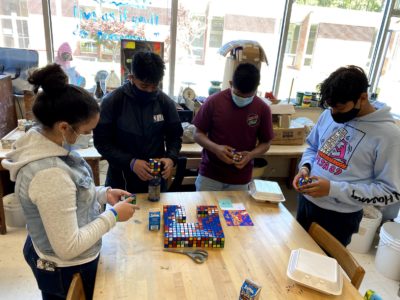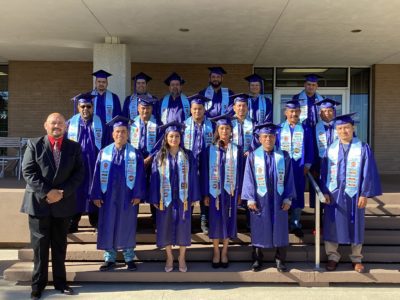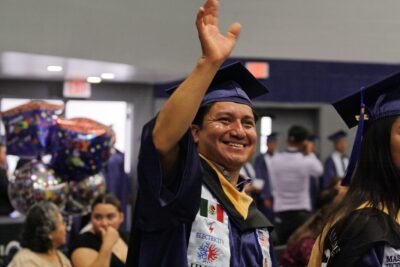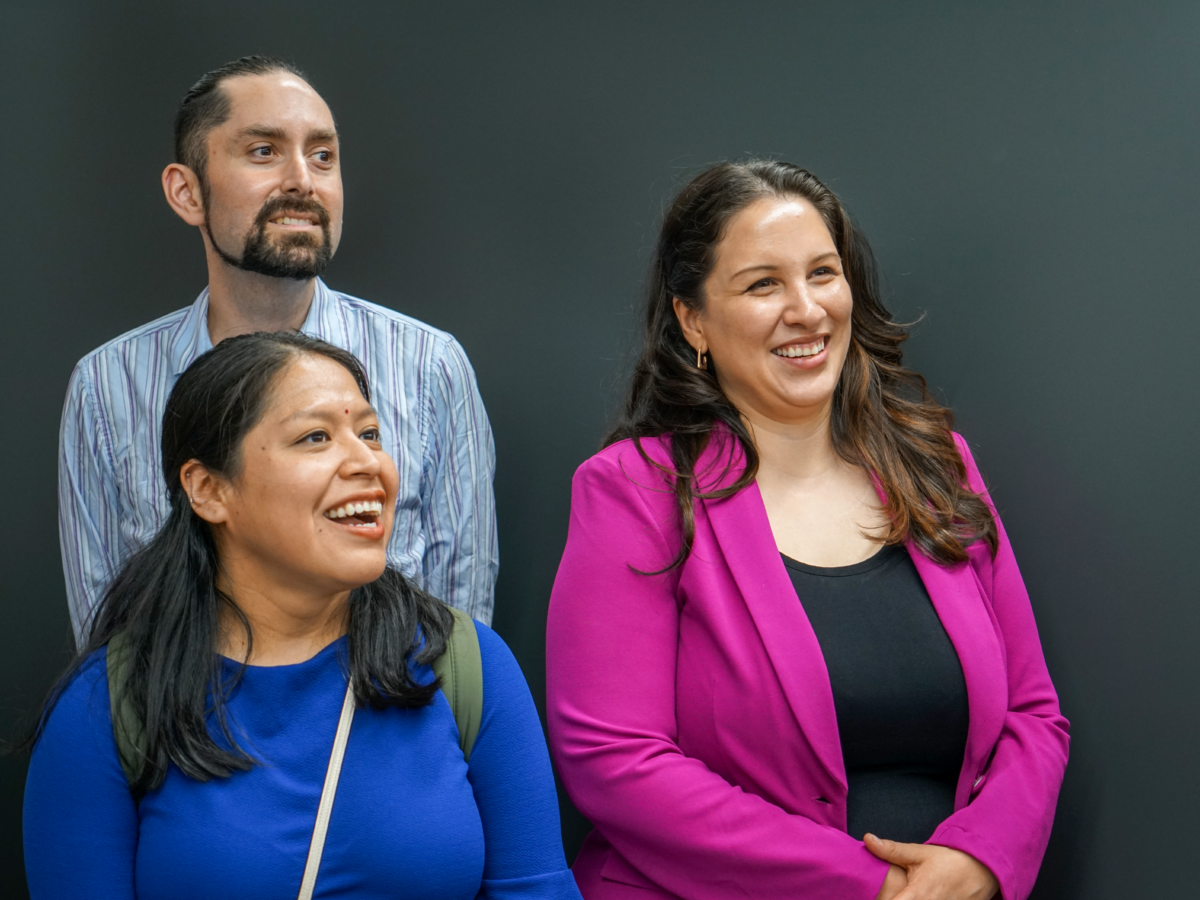
|
|
Gov. Roy Cooper’s Advisory Council on Hispanic/Latino Affairs Education Subcommittee visited Greene County Schools and Lenoir Community College on April 18, 2024 to learn more about the schools’ efforts to engage the Hispanic/Latino population in their communities. These visits are part of a series the subcommittee has taken to see the challenges and opportunities Hispanic/Latino students are facing across the state.
“We just want to learn,” said Prudencio Martinez-Mengel, director of Latino outreach and recruitment at Lenoir Community College and member of the subcommittee. “Instead of just sitting in Raleigh waiting for people to come, we just decided to go on the road and learn about the communities, get to know them, and let them know that we exist, because unfortunately, there’s a disconnection about Latino resources in the state and locally.”
The Hispanic/Latino community in North Carolina has seen significant growth in the past decade, with an estimated growth rate of 40% between 2010 and 2020. According to the 2020 Census, the Hispanic/Latino population makes up 10.7% of North Carolina’s population, which translates to more than 1.1 million people.
In addition to the statewide growth of the Hispanic/Latino community, the student population has increased as well. Today, Greene County School’s Hispanic/Latino student population makes up 35.4% of the total student population compared to 31.7% in the 2018-19 school year.
At the postsecondary level, Lenoir Community College has a Hispanic/Latino population of 17% in fall 2023 compared to 12% in fall 2018.
In August 2023, the advisory council issued the following recommendations on the topic of education:
- Provide effective communication with the Hispanic/Latino Community.
- Provide services to address the socio-emotional needs of Hispanic/Latino families.
- Provide postpandemic technology and digital literacy to Hispanic/Latino families.

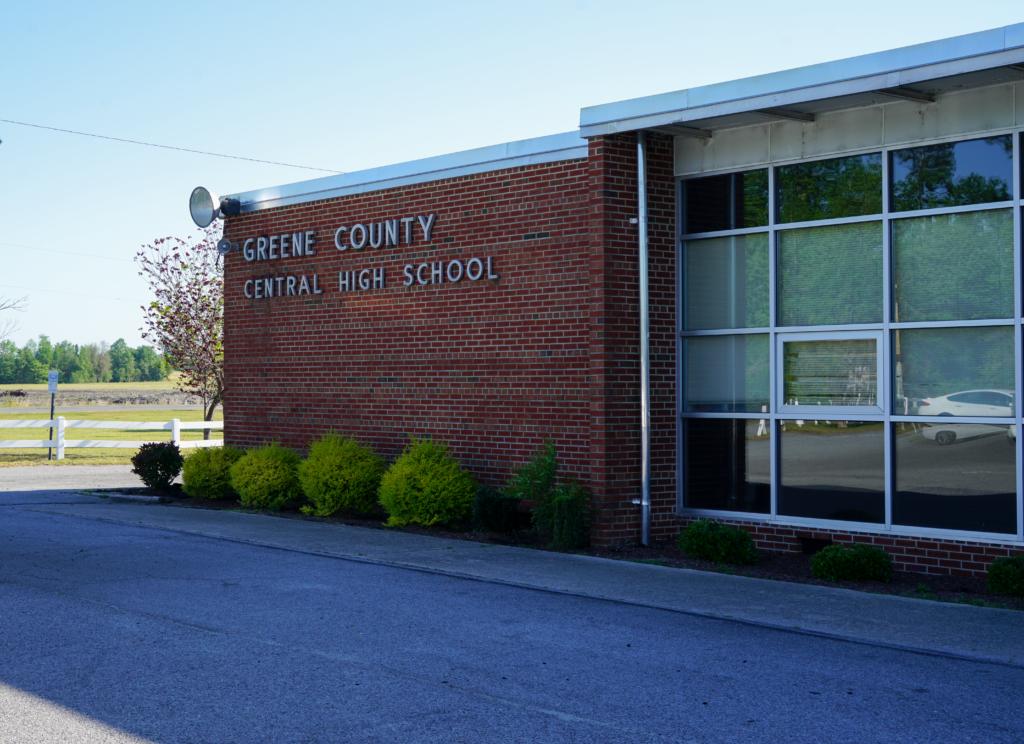
A ‘world community’
Greene County Schools has several initiatives focused on engaging their Hispanic/Latino students and families. The subcommittee learned about the Los Puentes two-way immersion program, the Juntos program, and Greene Early College. In addition, Greene Central High School’s STEM education coach, Dr. Emily Lahr, shared stories of STEM success. The high school, along with Greene County Middle School and Snow Hill Primary School, is a recognized NC STEM School of Distinction.
Greene County Schools has used the Los Puentes two-way immersion program for 20 years. Over time, this program, which means “bridges” in Spanish, has had an increasingly positive impact on both English and Spanish speaking students in the district. The program started in the early 2000s because Greene County saw a huge increase in its Hispanic/Latino population.
The two-way immersion program has 50% primarily English speaking students and 50% primarily Spanish speaking students and is available to students in grades K-5. For half of the day, students learn English and social studies. For the other half of the day, students learn science, math, and Spanish language arts.
“As a parent of two children who went through the program and finished the program, I couldn’t have paid for such a program, and I felt so blessed that Greene County, a world community, provided that for my children and the children of Greene County,” said Stephanie Cain, the title III, world languages, and arts education coordinator at Greene County Schools.
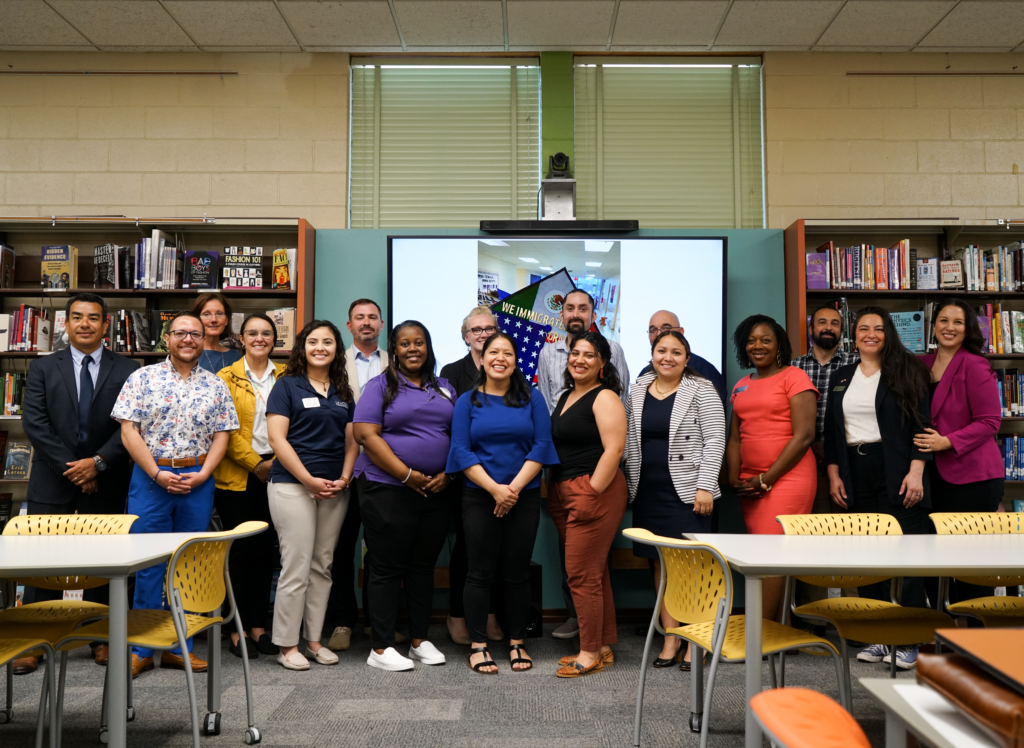
Centro Educativo Latino
After visiting Greene County Central High School, the subcommittee met with staff and faculty at Lenoir Community College. The college shared about several programs that are benefitting Hispanic/Latino students, including the Let’s Connect program from East Carolina University and the Centro Educativo Latino. Staff also shared the unique challenges their Hispanic/Latino students face.
“Residency is very scary for them, and so we have to really assure them and reassure their parents that it’s not a gotcha type thing. We’re really just trying to determine if you need in-state or out-of-state tuition. But it’s something so simple that can be very daunting, even for our other types of students,” said Dusk Stroud, the director of admissions and enrollment management at Lenoir Community College.
Despite these challenges, more and more Hispanic/Latino students are enrolling at Lenoir Community College. This is partly due to the impact of the Centro Educativo Latino on campus, which offers over 70 Spanish-language workforce courses. Some students are even traveling from out of state to participate in the courses offered.

“I have students that drive three to four hours to take classes on the weekends. We have students from Myrtle Beach, from Georgia, because we have classes taught in Spanish and the certifications, so it’s beneficial. It’s a win-win with everybody,” said Carlos Cotto, the associate dean of workforce development and Latino programs at Lenoir Community College.
Subcommittee members were able to see several of the courses offered on campus, including cosmetology, welding, and HVAC.
“I see a community college as a perfect hub, not only for schools, universities, but community leaders, the students, and the families,” said Prudencio Martinez-Mengel, director of Latino outreach and recruitment at Lenoir Community College.






